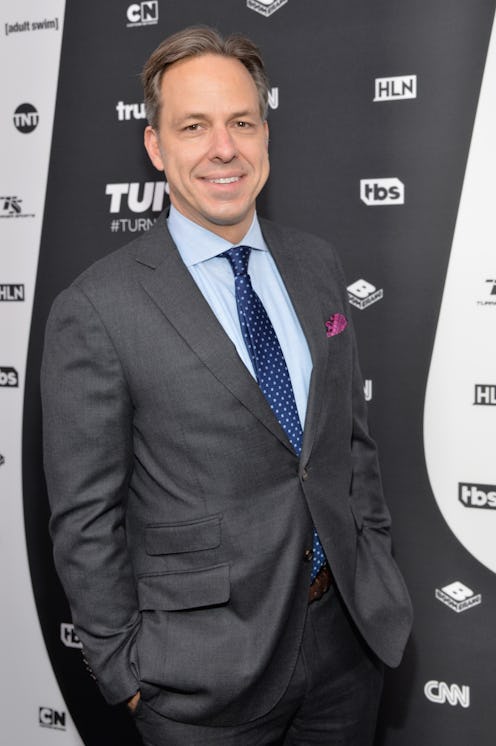News
Thank You, Jake Tapper
In their purest form, journalists are often expected to remain unbiased and impartial in their reporting. They're supposed to stick to the facts and to report things as they are. On Tuesday, CNN's Jake Tapper took a stand against Donald Trump, but he still managed to stick to all of the facts.
The presumptive Republican nominee has had a tense relationship with the media since announcing his campaign last year. He has accused various outlets of publishing false stories about him; he has personally attacked reporters with his notorious Twitter account; and he once appeared to mock a reporter with disabilities. That's not to mention his lively feud with Fox News anchor Megyn Kelly, which has only recently seemed to calm down as a result of a recent interview.
But perhaps it's the media who need to start holding Trump's feet to the fire. The divisiveness and passion that has surrounded Trump's campaign has created a dilemma for members of the media: How do they report on his campaign impartially when he doesn't always rely on the facts they need to report? Tapper, host of CNN's The Lead with Jake Tapper, made it clear on Tuesday that he'd had enough.
Citing a Washington Post interview in which Trump brought up the tragic case of former White House attorney Vince Foster, Tapper sought to set the record straight. In the interview, Trump pointed to the conspiracy theories surrounding Foster's death in 1993. Foster was an official under President Bill Clinton, until he reportedly took his own life in a northern Virginia park.
Trump called the circumstances of Foster's death "very fishy," but he assured the Post that he didn't actually want to talk about it — except, remember, he brought it up. For the record, the circumstances of Foster's death aren't all that fishy, at least not if you ask the people involved in the seven different investigations that surrounded his case. According to Tapper, it's not the first time that a candidate has given credibility to false theories — but he clearly hopes that it will be the last.
Once again, journalists are in the unhappy predicament of trying to decide whether and how to cover false allegations raised by a candidate for president of the United States. ... To be clear, the notion that this was a murder is a fiction, born of delusion and untethered to reality.
Tapper went on to call Trump's statements "shameful" and unfair to Foster's surviving wife and children. His position certainly undermined Trump, but Tapper seemed less concerned with the candidate than with the impact such falsehoods have on reporting.
This is not a pro-Clinton position or an anti-Trump position. It is a pro-truth position.
Nowadays, many mainstream media organizations are known for — or are suspected of — having certain biases. It's usually assumed that politicians have their biases. But Tapper's takedown of Trump serves as a reminder that there's a fine line and big difference between biases and falsehoods. If the media is expected to cover the news with a certain level of integrity, then shouldn't candidates be held similarly accountable? I think yes — so thank you, Mr. Tapper.
